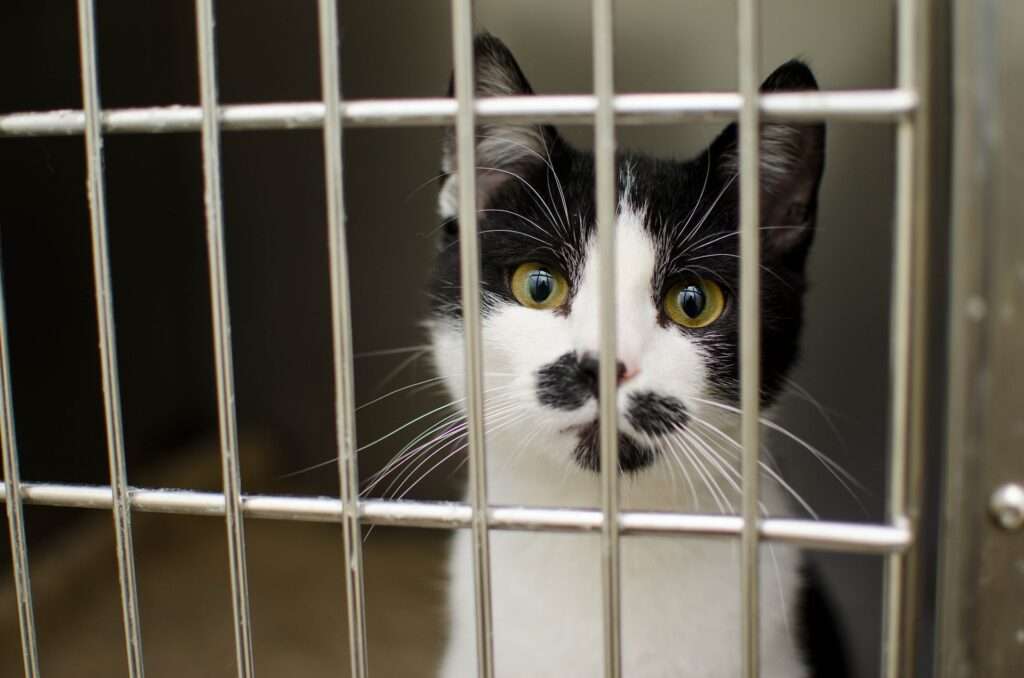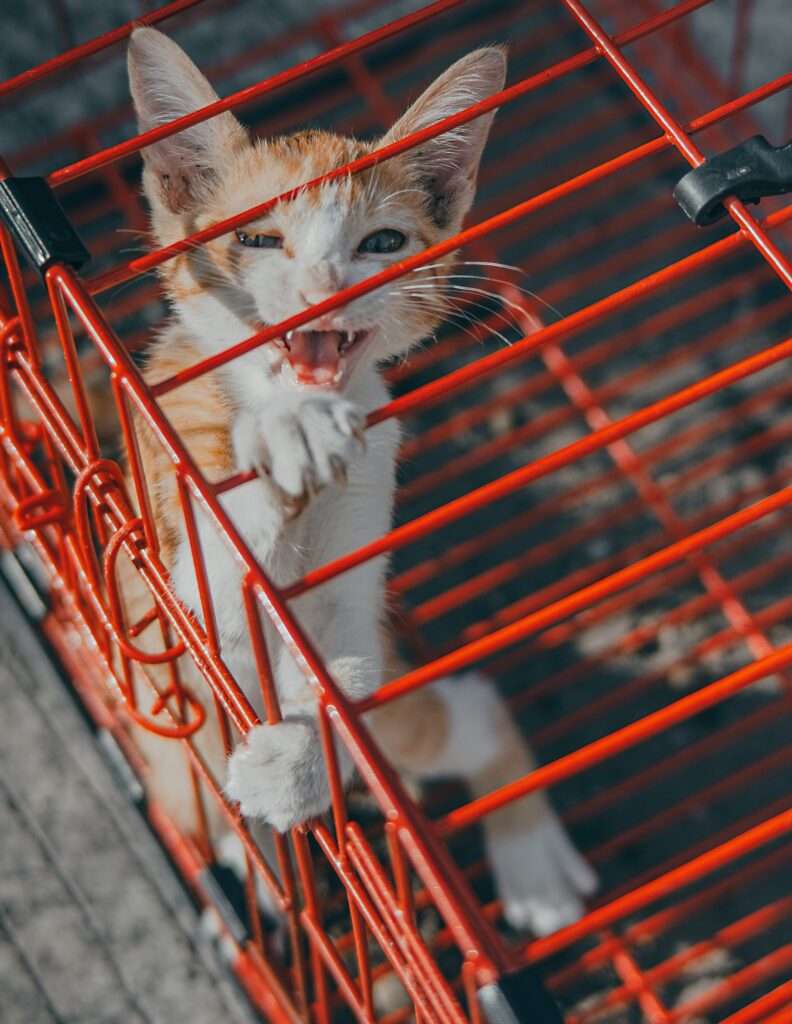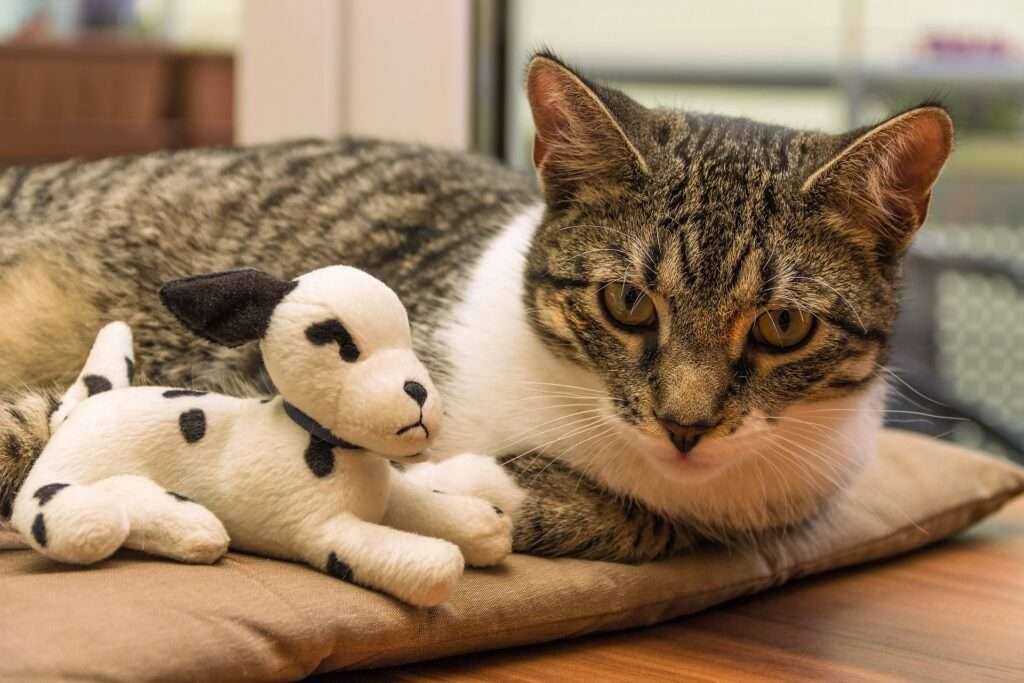8 Huge Red Flags When Adopting a Cat: Don’t Make These Mistakes!
Adopting a cat can be a thrilling and fulfilling experience, but it’s crucial to be aware of potential warning signs that may occur throughout the adoption process. Identifying these warning signs early on can help ensure that you find the perfect cat for your family and lifestyle.
In this article, we’ll provide a comprehensive guide to identifying red flags when adopting a cat. We’ll cover everything from the adoption process to health concerns, behavioral issues, and financial considerations. By the end of this article, you should have the necessary information to make a knowledgeable choice when adopting a new cat into your household.
Before You Adopt
Before you bring home your new furry companion, it’s crucial to do your research and prepare yourself for cat ownership. Research different breeds to find a cat that fits your lifestyle and living situation.
Think about the financial responsibilities of owning a cat and ensure you can provide for their basic needs. Owning a cat requires a long-term commitment from you to provide continuous care and attention to your beloved feline friend.
At BarkLikeMeow, we believe that every pet deserves a happy and healthy life. By being aware of red flags when adopting a cat, you can ensure that your new pet is happy and healthy, too. In the next section, we’ll explore the benefits of adopting from a shelter and how to identify red flags when visiting one.
Adopting from a Shelter or Rescue Organization

Finding a reputable shelter or rescue organization is the first step in the adoption process. These organizations provide valuable resources and support for potential adopters, and often have a wide variety of cats available for adoption.
It’s important to do your research and choose a shelter or rescue organization that is reputable and transparent. Look for organizations that are licensed and have a strong track record of successful adoptions. Seeking recommendations from friends, family, or a trusted veterinarian can also be a helpful way to find a reputable source for adopting a cat.
After selecting a shelter or rescue organization, the next step is to go through the adoption process. This typically involves filling out an application, undergoing a home visit, and meeting potential cats.
During the home visit, a representative from the organization will assess your home and living situation to ensure that it’s a safe and suitable environment for a cat. Inquiries regarding your lifestyle, such as whether you have children or other pets, may also be made during the adoption process.
Getting to know a cat’s personality and temperament through meetings is a crucial step in the adoption process, as it helps you find a cat that is compatible with your family and lifestyle.
Overall, the adoption process can be a lengthy and involved process. By investing time in finding a reputable adoption organization and going through the proper adoption process, you can increase the likelihood of finding the perfect cat for your home.
Adopting from a Breeder
In case you’re seeking a particular breed of cat, opting for adoption from a breeder may be the suitable option for you. A reputable breeder can provide information about the cat’s health history and pedigree, which can be helpful in predicting their behavior and potential health issues.
Additionally, adopting from a breeder can give you the opportunity to socialize your cat from a young age, which can help prevent behavioral issues down the road. When considering adopting from a breeder, it’s essential to look for signs of a reputable establishment. A good breeder will have healthy, happy cats and be willing to answer any questions you may have.
However, there are also red flags to look out for, such as breeders who have multiple litters of cats at once or who don’t allow you to see where the cats are kept. By being aware of these red flags, you can make an informed decision about which breeder to adopt from.
Health Concerns
It is crucial to be mindful of potential health issues when adopting a cat. Cats can suffer from a range of illnesses and conditions, so ensuring that your new furry companion is healthy and up-to-date on vaccinations is essential.
As you go through the adoption process, it’s essential to inquire about the cat’s medical history and any known health concerns. Additionally, observe the cat’s behavior and appearance for any indications of illness, such as lethargy, poor appetite, or discharge from the eyes or nose.
Routine preventative care, such as vaccinations, flea and tick prevention, and regular check-ups with a veterinarian, are crucial to ensuring your new cat’s long-term health and well-being. This can help prevent a variety of illnesses and ensure that your cat stays healthy.
Behavioral Issues

Behavioral issues can be a concern when adopting a cat. Cats can suffer from a variety of behavioral issues, such as aggression, fear, or inappropriate elimination. Being mindful of potential behavioral issues and having the knowledge to handle them appropriately is vital.
During the adoption process, observe the cat’s behavior for any signs of aggression, fear, or stress. Asking about the cat’s socialization history is equally important, as cats that have not been adequately socialized are more likely to develop behavioral problems.
If you notice any behavioral issues after adopting your cat, it’s important to address them early on. This may involve working with a veterinarian or animal behaviorist to develop a behavior modification plan. It’s also important to ensure that your cat has a comfortable and stimulating environment, as a lack of environmental enrichment can contribute to behavioral issues.
Overall, being aware of potential health and behavioral concerns when adopting a cat can help ensure that you find the perfect furry friend for your home. By observing the cat’s behavior and taking prompt measures to address any issues, you can promote the happiness and well-being of your feline companion in their new home.
Compatibility with Other Pets and Children
Considering the compatibility of a cat with other pets and children in your home is essential when adopting a feline companion. Cats can be territorial and may not get along with other pets, and they may also be wary of children.
Before adopting a cat, it’s important to introduce them to any other pets in the home in a controlled environment. This can help ensure that the animals get along and can coexist peacefully. Supervising interactions between children and cats is equally important to guarantee the safety of both the child and the cat.
If you have children or other pets in your household, it’s crucial to select a cat that is compatible with your lifestyle. Some cats may be more tolerant of children and other pets, while others may prefer a quieter, more low-key environment.
Environment and Lifestyle
Reflecting on a cat’s environment and lifestyle is crucial when adopting one. Felines have varying activity levels and personalities, thus, it’s vital to select a cat that matches your lifestyle.
For example, if you have a small apartment, a high-energy cat may not be the best fit. Conversely, if you have a large home with plenty of space for a cat to run and play, a more active cat may be a good choice.
It’s also important to consider your own lifestyle when choosing a cat. If you have a busy work schedule or travel frequently, a more independent cat may be a better fit. On the other hand, if you have a more flexible schedule or work from home, a cat that is more sociable and interactive may be an excellent option.
In the end, selecting the appropriate cat that suits your lifestyle and environment can promote a joyous and thriving relationship between you and your adorable furry companion. By considering factors such as activity level and personality, you can find the perfect cat to fit seamlessly into your home and lifestyle.
Financial Considerations

Taking into account the financial expenses related to pet ownership is imperative when adopting a cat. Cats require food, litter, toys, and regular veterinary care, and these costs can add up over time.
Prior to adopting a cat, it’s essential to estimate the cost of ownership and ensure that you possess the financial capability to take care of your new feline companion. This may involve setting aside a budget for pet-related expenses and considering factors such as the cost of veterinary care in your area.
It’s also important to consider pet insurance as a way to help mitigate the cost of unexpected veterinary bills. Pet insurance can provide coverage for accidents and illnesses and can help ensure that your cat receives the best possible care without breaking the bank.
Legal Considerations
When adopting a cat, it’s important to consider any legal considerations that may apply. For example, some cities and municipalities have laws or regulations related to pet ownership, such as licensing requirements or leash laws.
Guaranteeing that you adopt from a reliable source, like a shelter or rescue organization, is also vital. This step can help ensure that the cat you bring home is in good health and that all legal prerequisites, such as vaccinations, are fulfilled.
Lastly, it’s crucial to ponder on legal considerations pertaining to end-of-life care. This may involve creating a plan for your cat’s care in the event of your own illness or death, such as designating a caregiver or setting up a pet trust.
Taking legal considerations into account regarding pet ownership can aid in providing a safe and secure setting for your new feline companion.
Conclusion
Although adopting a cat can be a satisfying and fulfilling experience, it is imperative to think about all the factors involved before deciding to bring a new furry companion into your abode. From personality and activity level to compatibility with other pets and children, there are many important considerations to keep in mind when choosing a cat.
Thoroughly contemplating these important factors can help you in selecting a cat that suits your lifestyle and environment. Moreover, factoring in financial and legal considerations can help guarantee that you offer a stable and secure home for your new feline companion.
Ultimately, adopting a cat can be a wonderful experience that brings joy and companionship into your life. Taking into account these crucial considerations can help guarantee that you and your new feline companion establish a joyful and thriving bond that endures throughout both of your lives.
Frequently Asked Questions
Q: What should I consider before adopting a cat?
A: Before adopting a cat, consider your lifestyle, the environment you can provide, potential compatibility with other pets or children in your home, the estimated cost of ownership, and potential health concerns.
Q: Where can I adopt a cat?
A: You can adopt a cat from animal shelters, rescue organizations, or breeders.
Q: How do I choose the right cat for me?
A: Consider the cat’s activity level, personality, and socialization history to choose a cat that is compatible with your lifestyle.
Q: How can I ensure my cat’s health and well-being?
A: Ensure your cat receives routine preventative care, such as vaccinations, flea and tick prevention, and regular check-ups with a veterinarian. Provide your cat with a comfortable and stimulating environment and address any behavioral or health issues as soon as possible.
Q: What are some potential red flags during the adoption process?
A: Potential red flags during the adoption process include lack of information about the cat’s medical history, unclean living conditions, and aggressive or fearful behavior from the cat or shelter staff.
Q: What should I do to prepare my home for a new cat?
A: Make sure your home is safe for your new cat by removing any potential hazards, such as toxic plants or loose cords. Set up a litter box, food and water dishes, and a comfortable sleeping area. Provide toys and scratching posts to keep your cat stimulated.
Q: How do I introduce my new cat to other pets in my home?
A: Introduce your new cat to other pets gradually and under supervision. Provide a separate space for your new cat to retreat to, and allow your pets to sniff and observe each other from a distance before allowing direct interaction.
Q: How can I help my new cat adjust to their new home?
A: Give your cat time to adjust to their new surroundings by providing a consistent routine and familiarizing them with their new environment gradually. Offer plenty of positive reinforcement and affection to help build trust and confidence.
Q: What should I do if my new cat has behavioral issues?
A: Consult with a veterinarian or animal behaviorist to address any behavioral issues, such as aggression or litter box problems. Avoid punishing or scolding your cat, and instead use positive reinforcement and training techniques to modify behavior.





